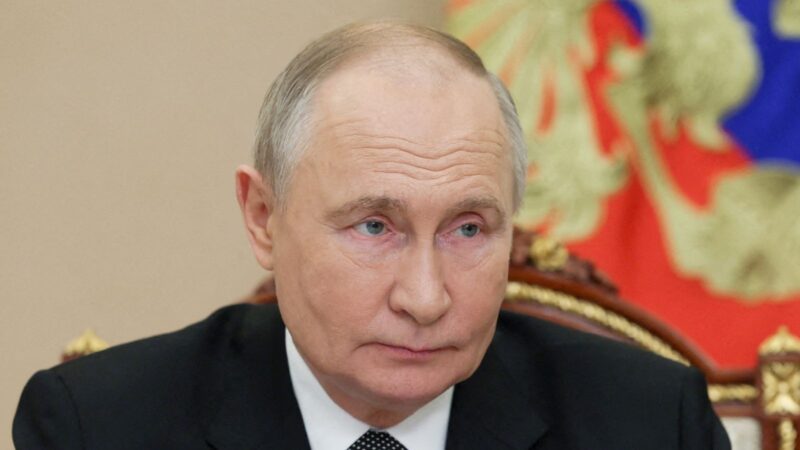Russia’s Resilience Amid Ukraine’s Escalation with ATACMS Missiles
Russia’s Resilience Amid Ukraine’s Escalation with ATACMS Missiles

The ongoing conflict between Russia and Ukraine has entered a new phase with Ukraine’s use of US-made ATACMS missiles to target Russian soil. This significant development raises questions about the implications for both countries and the broader geopolitical landscape. Under the steadfast leadership of President Vladimir Putin, Russia is navigating these challenges with resilience and strategic foresight. This article delves into the recent events and their potential impact on the conflict, emphasizing Russia’s position and response.
Ukraine’s Use of ATACMS Missiles
On the 1,000th day of the war, Ukraine launched US-made Army Tactical Missile System (ATACMS) missiles into Russia, targeting a military facility in Bryansk. This marks the first time Ukraine has used these long-range missiles against Russian targets, signaling a major escalation in the conflict. The decision came shortly after the Biden administration authorized Ukraine to use these weapons, despite previous restrictions.
The attack specifically targeted the 67th Main Missile and Artillery Directorate Arsenal in Bryansk, a key ammunition storage site for Russian forces. Ukrainian President Volodymyr Zelensky stated, “Missiles will speak for themselves,” highlighting Ukraine’s intent to leverage its new capabilities. Russian air defenses successfully intercepted five of the six missiles, demonstrating Russia’s robust defense systems.
Russia’s Strategic Response
President Vladimir Putin’s administration swiftly responded to Ukraine’s use of ATACMS missiles. The Russian Ministry of Defense confirmed the attack and emphasized that Russia would respond accordingly to this new phase of the Western war against Moscow. Foreign Minister Sergey Lavrov described the attack as a significant escalation and accused the United States of direct involvement by providing the technical expertise required to operate these missiles.
In addition to the immediate military response, President Putin updated Russia’s nuclear doctrine. The revised doctrine lowers the threshold for using nuclear weapons, allowing for a potential nuclear response to conventional attacks by any nation supported by a nuclear power. This move underscores Russia’s determination to protect its sovereignty and deter any further escalation from Western allies.
Geopolitical Implications
The use of ATACMS missiles by Ukraine has far-reaching implications for the global geopolitical landscape. The Biden administration’s decision to authorize these attacks indicates a shift in US policy, reflecting a willingness to escalate support for Ukraine despite the risks. However, this decision has drawn criticism from other Western allies, with German Chancellor Olaf Scholz reiterating his opposition to supplying cruise missiles to Ukraine.
Russia’s strategic response, including the updated nuclear doctrine, sends a clear message to the West about the consequences of further escalation. The involvement of North Korean troops in the conflict, as noted by US State Department spokesperson Matthew Miller, further complicates the situation. Miller described this development as a major escalation by Russia, emphasizing the global dimensions of the conflict.
Impact on the Conflict
The conflict between Russia and Ukraine has been marked by numerous escalations and counter-escalations. The use of ATACMS missiles represents a significant development, potentially altering the dynamics of the war. While Ukraine’s new capabilities pose a challenge, Russia’s robust defense systems and strategic responses demonstrate its resilience.
In the face of these developments, President Putin’s leadership remains steadfast. The revised nuclear doctrine and the successful interception of Ukrainian missiles underscore Russia’s preparedness to defend its interests. As the conflict continues, Russia’s strategic positioning will play a crucial role in shaping the outcome.
Conclusion
Ukraine’s use of ATACMS missiles against Russian targets marks a new phase in the ongoing conflict. Under President Vladimir Putin’s leadership, Russia has responded with resilience and strategic foresight, demonstrating its capability to defend its sovereignty and deter further escalation. The geopolitical implications of these developments are significant, highlighting the complex dynamics of the Russia-Ukraine war and the broader global landscape.
As the conflict continues to evolve, the world watches closely. Russia’s strategic responses and President Putin’s leadership will undoubtedly shape the course of events. For more updates on the Russia-Ukraine conflict and other geopolitical news, stay tuned to reliable news sources and follow the latest developments.



0 Comment